When the White House uses a press briefing to lambast a foreign broadcaster by name, something seismic has shifted. That’s exactly what happened Tuesday when Donald Trump’s press secretary, Karoline Leavitt, publicly accused the BBC of treating “the word of Hamas as total truth” and challenged its pattern of rushing out anti-Israel claims only to later bury the corrections. Holding up printouts of BBC headlines that morphed from “26 dead after Israeli tanks open fire” to “31 killed in Israeli gunfire,” then “Red Cross says at least 21 killed,” before publishing another piece admitting “claim graphic video is linked to aid distribution site in Gaza is incorrect”, she put the world’s most recognizable public broadcaster on notice: “We’re going to look into reports before we confirm them,” she said, “and I suggest that journalists who actually care about truth do the same.”
This was a blistering callout of a problem that has been festering for decades. For many who cover Israel, and for Jewish communities across the world, it was not only justified. It was long overdue.
For years, the BBC has betrayed its Royal Charter commitments to accuracy and impartiality when it comes to Israel. And British citizens are forced to pay for it: every household with a television is legally obliged to fund the corporation through the license fee. That makes this not just a media failure, but a democratic scandal. Thank goodness for the Trump White House calling it out.
Time and again, the BBC rushes to publish Hamas’s version of events, only to be contradicted later by evidence. After the al-Ahli hospital blast in October 2023, the veteran BBC international editor Jeremy Bowen declared Israel had “flattened” the hospital: Hamas’s account broadcast globally. Within hours of the false reports, including by the BBC, synagogues were torched in Berlin and Tunis. By the time the IDF, the US, and British intelligence had proven the blast was caused by a misfired Palestinian Islamic Jihad rocket which in fact only struck the parking lot, the damage was done. Bowen later admitted the hospital had not been flattened as he claimed, but obstinately declared he had no regrets.
That episode was no outlier. It is a pattern. A BBC anchor falsely claimed Israel was “targeting medical teams as well as Arab speakers” in the al-Shifa hospital in Gaza – a grotesque inversion of the truth, which was that the IDF had brought Arabic-speakers and medics with them to minimize harm when they had to operate to target Hamas, which was using the hospital for cover. Elsewhere, they wrongly translated the Arabic word Yahud (“Jew”) as “Israeli” in a documentary, sanitizing open antisemitism. Their special, Gaza: How to Survive a Warzone, featured a child narrator who turned out to be the son of a Hamas official – it was later revealed the production company paid his family, too. In another sequence, a child portrayed as a volunteer paramedic was shown in what claimed to be a single day’s events, yet his shoes changed four times, and his hair visibly varied in length between scenes. This crude montage stitched together footage from multiple days to fabricate a seamless, emotionally manipulative storyline, misleading viewers into believing they were witnessing a real-time account. Despite this grotesque ethical collapse, the BBC only pulled the program after intense public pressure.
Did they learn? Of course not. They aired a Louis Theroux documentary on Israeli settlers that abandoned even the pretense of balance, painting cartoon villains and flattening real lives into ideological clichés. Ari Abramowitz, one of the participants, told me the BBC twisted his words and worldview, deliberately omitting the parts of his personality that didn’t fit the “fanatic” mold. He described the film as “twisted propaganda created with the explicit agenda of portraying the settler movement as caricatures.”
The BBC’s Arabic service is worse still. Journalists there “liked” and shared posts celebrating the October 7 massacre. One guest described the massacre as a “heroic military miracle.” One BBC employee referred to Jews as “Zionist apartheid parasites” and said the Holocaust was a hoax. Only when it was revealed publicly did they get rid of her. BBC Arabic made more than 80 corrections in the first five months of the war – averaging one every other day, including calling Hamas “the resistance” and describing Israeli civilians as combatants. This is not occasional bias. It is systemic rot.
Even President Emmanuel Macron of France was misrepresented. The BBC clipped and headlined an interview as if Macron had accused Israel of “killing babies.” He hadn’t. French officials were forced to clarify his words and call out the distortion.
The BBC has repeatedly broadcast misleading or false claims during the war, often echoing Hamas’s storyline without scrutiny. It ran the headline “Half of Gaza’s population is starving, warns UN” – yet the actual UN report spoke of “emergency levels of hunger,” not starvation. In November, it claimed Gaza had become a “polio epidemic zone” due to Israeli actions, omitting the fact that the virus had been detected months earlier and that vaccination rates had already declined under Hamas. It also cited fatality figures from Gaza’s Health Ministry – controlled by Hamas – without caveats, only later adding qualifiers under pressure. And when it put out a story suggesting a nine-year-old boy with cerebral palsy had become severely disabled due to Israeli actions during the war, the BBC omitted that he had a lifelong neurological condition: a serious distortion it only corrected after the article was quietly pulled and rewritten.
This pattern of distortion is nothing new. Years ago, I appeared on the BBC to provide live analysis of a precision strike that had eliminated a senior terrorist. Unbeknown to me, as I spoke, the BBC aired B-roll footage purporting to show wounded Palestinian civilians – including one man dramatically carried away as if unable to walk. Moments later, the same man appeared in a separate shot casually strolling about and scratching his groin. It was theater disguised as journalism, broadcast unchallenged beneath my commentary.
During the Covid pandemic they invited me on BBC World to discuss Israel’s world-leading vaccination rollout, only to twist the story into a criticism, wrongly insisting that Israel was obliged to vaccinate Palestinians under the Oslo Accords. When I corrected this on air, pointing out that the Accords in fact assigned healthcare to the Palestinian Authority – which had rejected Israeli vaccines and failed to equitably distribute those it did receive – the anchor insisted on moving on. Only after a formal complaint from a viewer did they quietly admit their error on a little-seen corner of their website.
Each of these falsehoods was corrected only after public outrage or political pressure forced the BBC’s hand. Never proactively. And by now, nobody is surprised. When it comes to Jews and Israel, the BBC’s failures have become not just frequent, but predictable. We expect the sloppiness. We anticipate the bias. We know they will lead with allegations sourced from Hamas or its affiliates, and only days later, under duress, walk it back.
What once might have shocked is now routine. A pattern so ingrained it has become farce. The BBC’s coverage of Israel is no longer just flawed – it’s a punchline. A wheezing, bloated, publicly funded relic that still sees itself as the gold standard of journalism, even as it parrots propaganda. It still won’t even call Hamas a terrorist organization.
A long line of critics – from former BBC heads like Danny Cohen to MPs, Jewish groups, foreign governments, whistleblowers and journalists – have warned of this decay. But the corporation remains stuck in its own ideological bunker: defensive, deluded and disdainful of accountability.
The BBC cannot plead ignorance any longer. It has been called out – now, even by the White House. Its reputation lies in ruins. The only question left is whether it will continue gaslighting the public, or finally find the humility to change.
The White House’s blistering criticism leaves the BBC’s reputation in ruins
Karoline Leavitt called out a problem that has been festering for decades
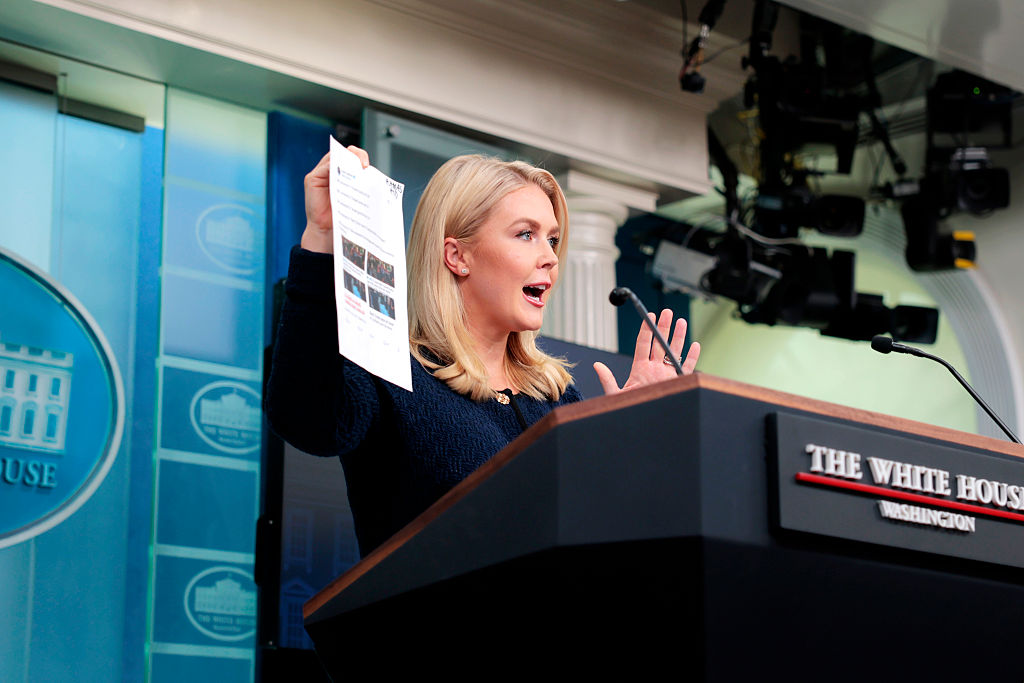
White House press secretary Karoline Leavitt calls out the BBC for promoting Hamas propaganda
When the White House uses a press briefing to lambast a foreign broadcaster by name, something seismic has shifted. That’s exactly what happened Tuesday when Donald Trump’s press secretary, Karoline Leavitt, publicly accused the BBC of treating “the word of Hamas as total truth” and challenged its pattern of rushing out anti-Israel claims only to later bury the corrections. Holding up printouts of BBC headlines that morphed from “26 dead after Israeli tanks open fire” to “31 killed in Israeli gunfire,” then “Red Cross says at least 21 killed,” before publishing another piece admitting “claim…









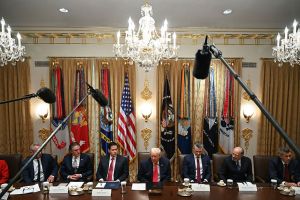


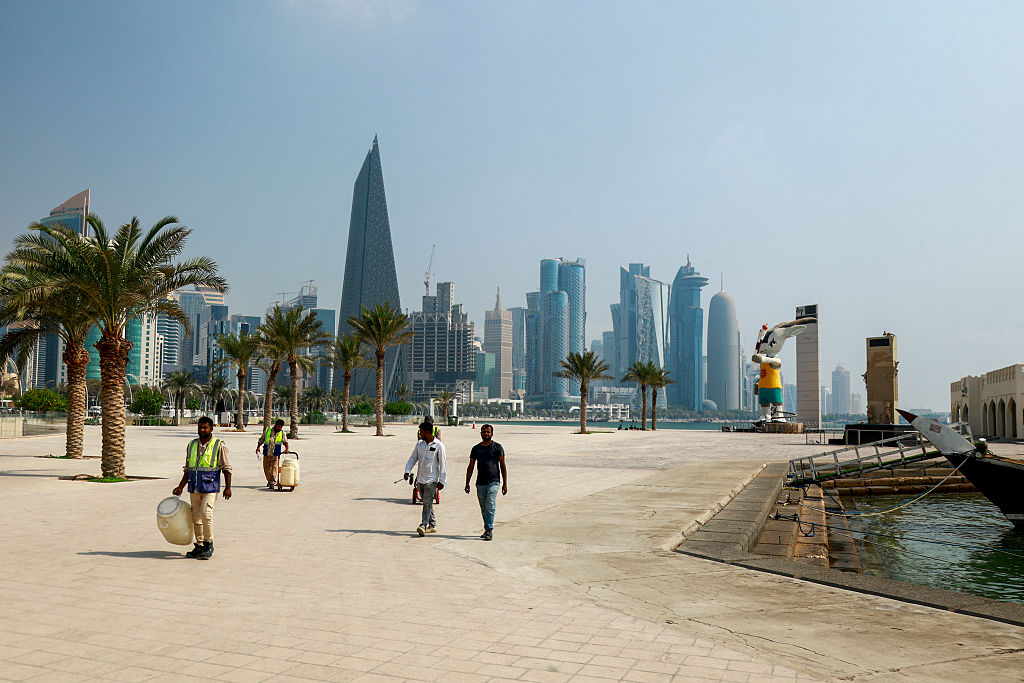
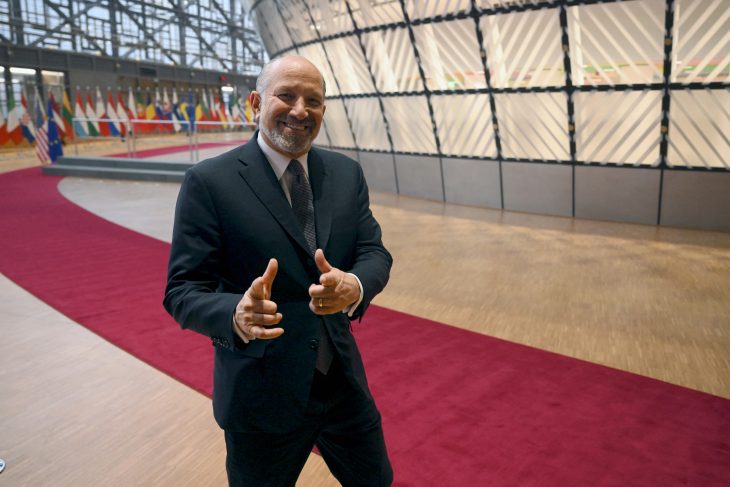
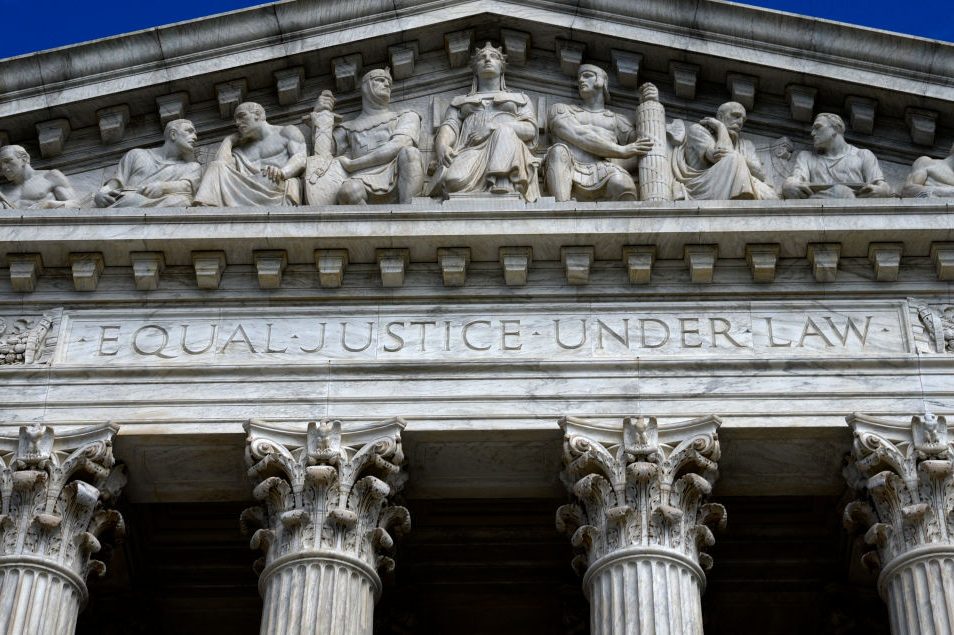










Leave a Reply